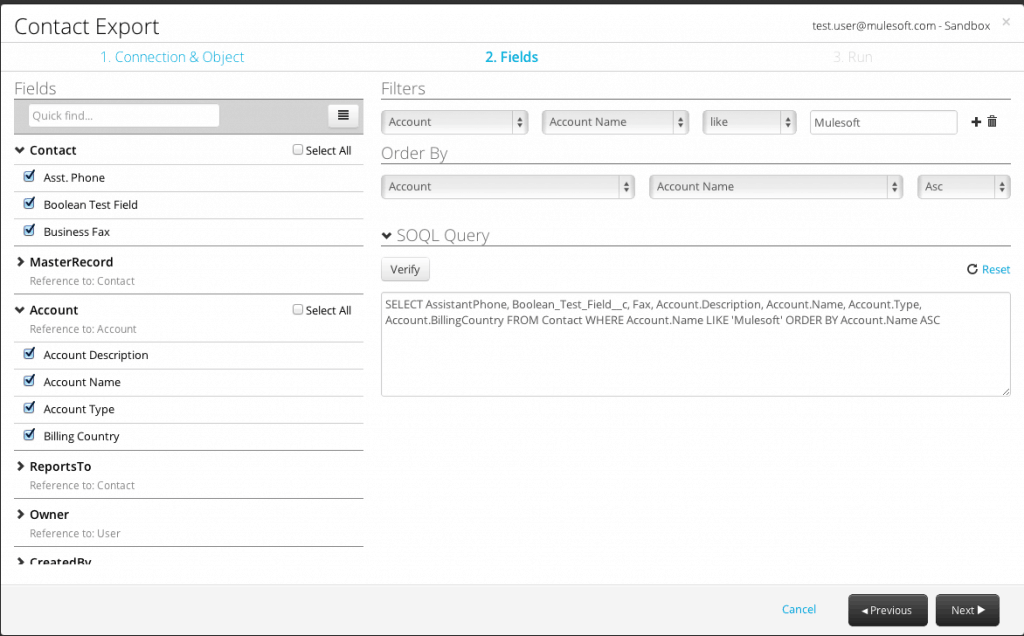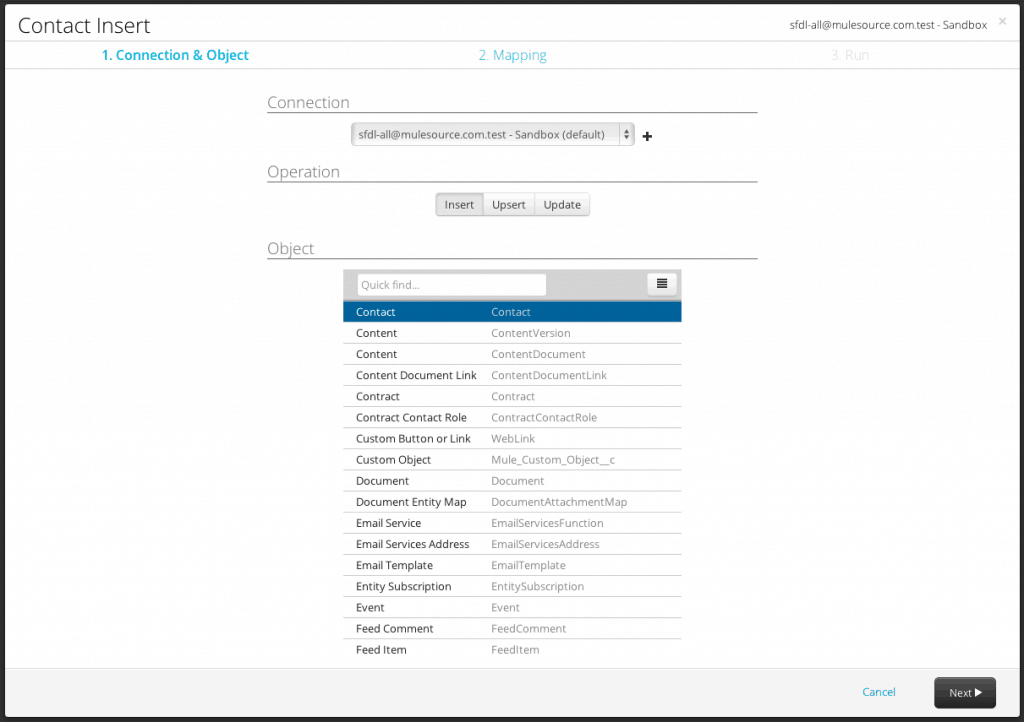We’ve just started 2013 and we already have something to celebrate! Dataloader.io January release is out with many improvements that will make your data loading life even easier than before, including:
> Related object exports – e.g. export contacts and their related accounts in a single operation.
> Filter exports by related objects – e.g. export accounts for a certain user.
> Create custom SOQL queries for advanced reporting.
> Friendlier error messages for data problems.
What’s new?
Export Improvements
Support for Exporting Related Objects information
Export multiple objects in one step by selecting related objects to export. For example: retrieve from your contacts and their related accounts, owners, etc. on a single operation.
Filter your Exports using Related Objects
Do you need to get all the accounts for a certain user? Now you can do that using the related objects filters! All the related objects and their fields are available now as options for filtering and ordering.
Improved filters based on field types
- Do fuzzy logic filters on text fields using: equals, non equals, starts with, ends with, contains, does not contain, like, not like.
- Filter by empty fields using the ‘is empty’ and ‘is not empty’ filter values.
Create your own Custom SOQL queries
One of the most requested features from our users, now you can develop and run your own custom SOQL queries using AND/OR expressions and verify them before creating the task.
New Streamlined Wizard UI
The new UI has a clear separation between the steps and the Task Name. Your connection name on the top right so you always know which Salesforce instance you are working with. And, we’ve also improved the Object list with a more clear design including the object names on the right.
Friendlier error messages
We’ve heard from our users that there need to be friendlier error messages so we’ve invested a lot of effort in improving them across the whole application. For that purpose we added a file validation process to check for:
- Invalid file format.
- Duplicate header names.
- Wrong dates and booleans values with detailed error messages.
And we’ll be rolling out even more improvements to error reporting over the next couple weeks.
We hope enjoy all these improvements and all the other little ones too numerous to mention. Happy dataloading!










